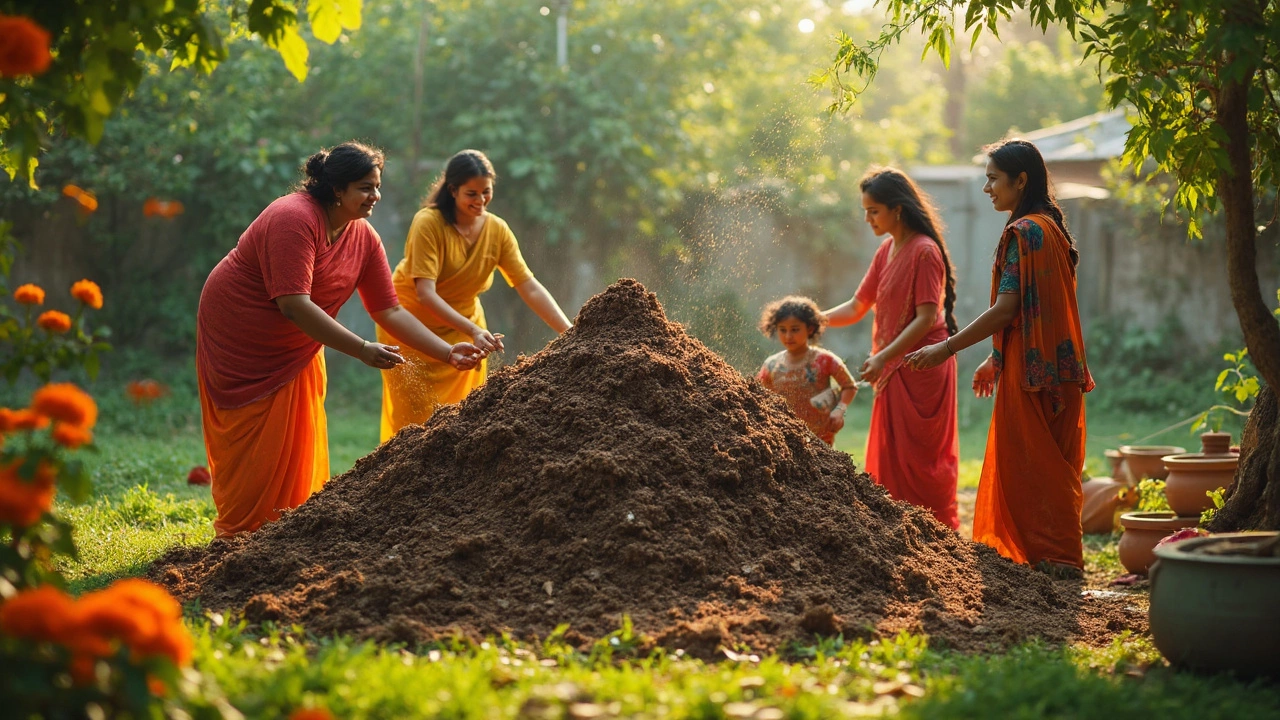Everything you need to know about compost activators—how they work, what ingredients speed up compost, and practical tips to supercharge your pile naturally.
Compost Activator: What It Is and How It Speeds Up Your Garden Waste
When you’re trying to turn kitchen scraps and yard waste into rich soil, a compost activator, a substance that speeds up the breakdown of organic matter by boosting microbial activity. Also known as compost starter, it’s not magic—it’s biology. Without it, your pile might sit for months, smelling bad or staying cold. With it, you get dark, crumbly compost in weeks. The key? Giving the tiny microbes that do the work exactly what they need: food, air, water, and the right balance of nutrients.
Most compost activators work by adding nitrogen-rich materials, organic substances high in protein that feed the bacteria breaking down carbon-rich waste. Think grass clippings, coffee grounds, or even old manure. These aren’t optional extras—they’re the engine. Your leaves, paper, and straw? That’s the fuel. But without enough nitrogen, the engine sputters. Some people buy powders or liquids labeled as activators, but the cheapest and most effective ones are often right in your kitchen or backyard. A handful of finished compost from last season? That’s loaded with live microbes. A cup of urine? Surprisingly high in nitrogen and safe if diluted. You don’t need fancy products. You need balance.
The organic matter, any material that comes from living things and can decompose into soil nutrients you add matters just as much as what you add it with. If your pile is mostly dry leaves, it’ll take forever. If it’s mostly wet veggie scraps, it’ll turn slimy. The best results come from mixing both—greens and browns. And if you’re in India, where heat is constant and monsoons come fast, your pile can go from sluggish to roaring in days. Just make sure it’s not too wet, not too dry, and has enough air. Turn it once a week. Cover it if it rains too hard. That’s it.
What you’ll find in the posts below are real, tested ways people in Indian homes and small farms use compost activators—no theory, no fluff. You’ll see how gardeners in Pune turned pile waste into soil in 21 days using only kitchen scraps and cow dung. How a farmer in Bihar revived dead soil with a simple mix of jaggery, molasses, and water. How balcony gardeners in Mumbai avoid smells while speeding up their tiny compost bins. These aren’t experiments. These are fixes that worked. And they all start with understanding what a compost activator really does: it doesn’t create compost. It just helps nature do its job faster.
